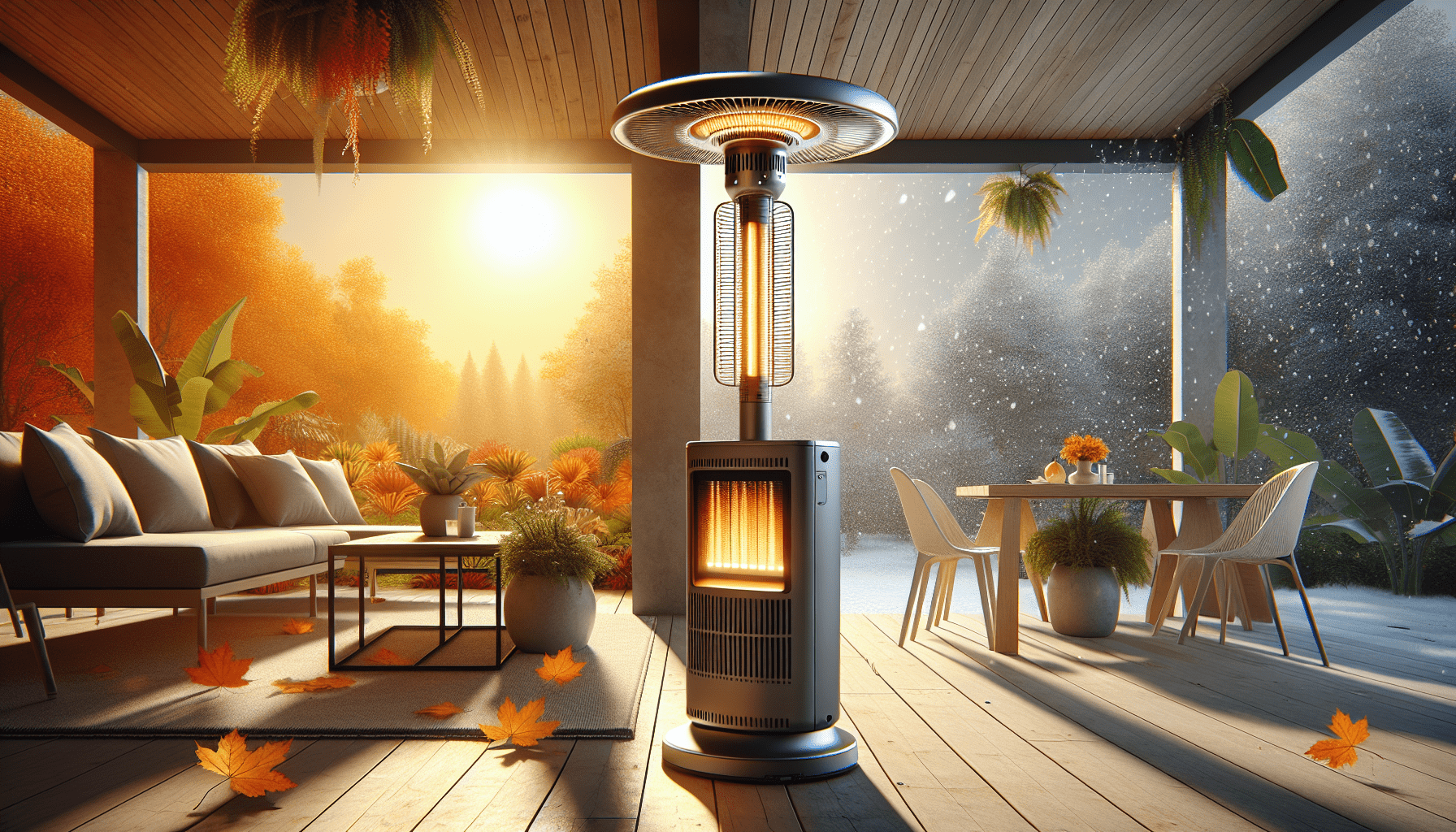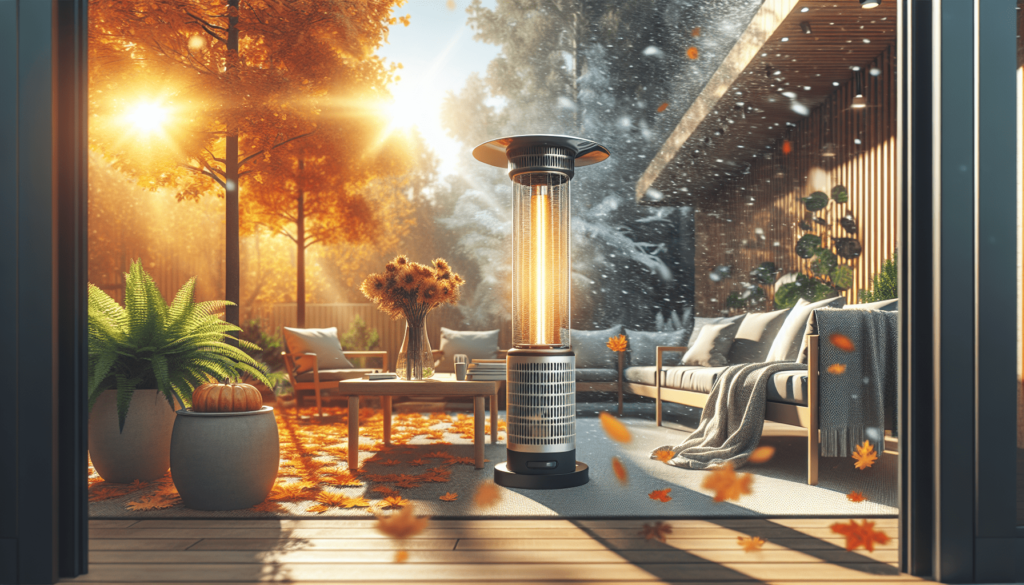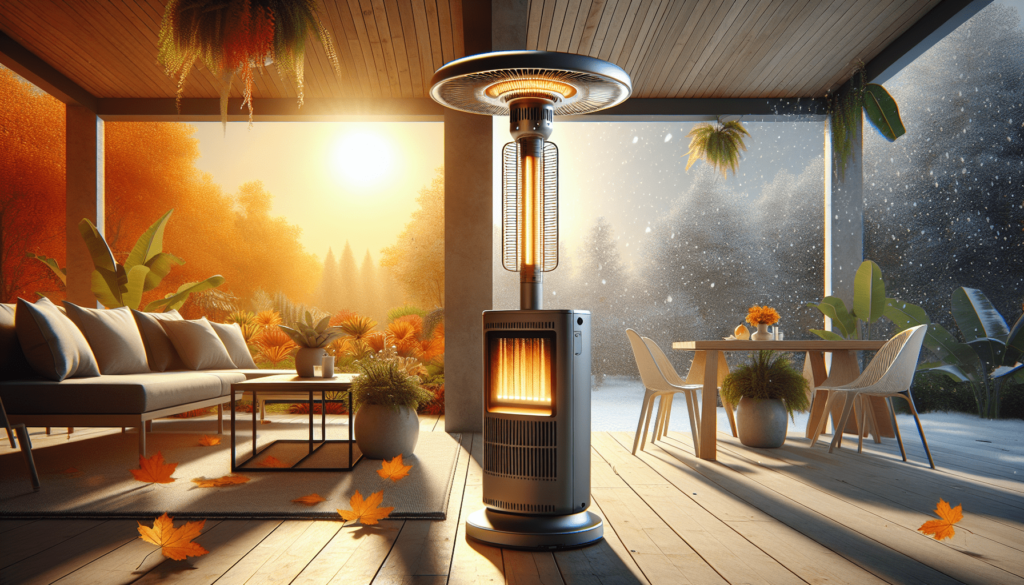
Have you ever wondered which patio heater is best suited for your climate and outdoor space? Choosing the right heater can transform your patio into a cozy retreat, no matter where you live. Whether you’re sipping hot cocoa in a snowy mountain town or enjoying a crisp ocean breeze in your coastal getaway, the right patio heater lets you embrace the outdoors year-round. With so many options available, it can feel overwhelming to decide what works best for your specific needs. Let’s take a friendly journey through the world of patio heaters and explore which types are ideal for various climates.
Understanding Patio Heaters
Before diving into the specifics, it’s essential to understand what types of patio heaters exist and how they operate. Essentially, patio heaters are devices designed to extend the usability of outdoor spaces by providing warmth. They can be fueled by propane, natural gas, or electricity.
Types of Patio Heaters
There are three main types of patio heaters: freestanding, tabletop, and wall-mounted. Each has its unique benefits and is suitable for different setups and spaces.
-
Freestanding Heaters: These are the most common type and often resemble tall lamps. They’re typically powered by propane or natural gas and can heat a large area.
-
Tabletop Heaters: As the name suggests, these are smaller and designed to be placed on tables. They’re usually suitable for small gatherings and can be fueled by propane or electricity.
-
Wall-Mounted Heaters: These heaters are fixed and typically powered by electricity. They’re ideal for covered patios or areas where space is limited.
How Do Patio Heaters Work?
Patio heaters use various methods to generate warmth. The most common forms are radiant heat, convection heat, and infrared heat.
-
Radiant Heat: This type mimics the sun by warming objects rather than the surrounding air, making it effective in open spaces.
-
Convection Heat: It circulates warm air, which is more suitable for enclosed or semi-enclosed areas.
-
Infrared Heat: These heaters use infrared rays to warm objects directly, providing a targeted and efficient heat source.
Choosing the Right Heater for Your Climate
The effectiveness of a patio heater greatly depends on the climate you’re in. Let’s look at which heaters work best in various environments.
Cold Climates
If you’re living in a place with harsh, cold winters, you’ll want a robust heating solution. Freestanding propane or natural gas heaters can be particularly effective. Brands like Hampton Bay and Dyna-Glo offer models that are powerful enough to provide warmth even in freezing temperatures.
Why Choose These?
- Hampton Bay: Known for durability and efficiency, making it a reliable choice for cold weather.
- Dyna-Glo: Offers a variety of models that can heat large areas, ideal for entertaining even in cooler temperatures.
A tip for those colder environments: consider using multiple heaters to evenly distribute heat across larger spaces.
Mild Climates
In regions with mild temperatures, a lesser amount of heat is necessary to create a comfortable atmosphere. Here, electric heaters like Bromic Heating and Heat Storm are excellent choices.
Why Choose These?
- Bromic Heating: Known for sleek designs that blend well with modern patios, offering both elegance and efficiency.
- Heat Storm: Their wall-mounted options are perfect for patios where space-saving is a priority.
These heaters are perfect for providing sufficient warmth without overwhelming the space, making it cozy without being too hot.
Coastal Areas
For coastal areas, it’s essential to choose materials resistant to corrosion due to salt in the air. Stainless steel heaters are advisable due to their durability.
Recommended Brands:
- Infratech: Offers models that withstand salty air conditions and provide reliable infrared heating.
- Fire Sense: Known for its corrosion-resistant materials, keeping your heater intact and functional.
These heaters ensure you enjoy the beautiful ocean views without worrying about maintenance issues related to rust.

Key Features to Consider
While climate plays a significant role, several other features can influence your choice.
Heat Output
The output of a patio heater is measured in BTUs (British Thermal Units). Higher BTUs indicate a stronger heat output, suitable for larger spaces or colder climates. For instance, a standard freestanding propane heater typically delivers between 40,000 to 50,000 BTUs.
Safety Features
Safety should always be a paramount concern. Look for features like an automatic shut-off valve, which turns off the heater if it gets tipped over. This is especially important if you have children or pets.
Portability
If you plan on moving your heater around frequently, consider models with wheels. Freestanding heaters are usually equipped with this feature, making them easy to reposition as needed.
Cost Considerations
Patio heaters come in a range of prices, largely determined by their type, fuel source, and additional features. Here’s a rough breakdown:
| Type | Price Range | Example Brand |
|---|---|---|
| Freestanding | $100 – $500 | Dyna-Glo |
| Tabletop | $50 – $150 | Fire Sense |
| Wall-Mounted | $100 – $400 | Bromic Heating |
Remember, a higher upfront cost doesn’t always equate to better quality, but investing in a reputable brand can often yield better reliability and performance over time.

Installation and Maintenance
Installation Tips
Installing a patio heater is generally straightforward, but there are a few key considerations.
-
Gas Heaters: Require connection to a gas line, which may necessitate professional installation to ensure safety and compliance with local codes.
-
Electric Heaters: These need to be installed close to a power source. For wall-mounted models, consider mounting height to maximize heat distribution.
Maintenance Advice
Regular maintenance is crucial to extend the life of your patio heater.
-
Clean Regularly: Dust and debris can accumulate, particularly on outdoor heaters. Regular cleaning not only keeps them looking good but also ensures efficient operation.
-
Check Connections: Especially for gas heaters, inspect connections and hoses regularly to prevent leaks.
-
Store Properly: If you’re not planning on using your heater during certain months, consider storing it in a dry place or using a weather-resistant cover.
Maximizing Efficiency
Even with the perfect patio heater, there are additional steps you can take to make your space warmer and more inviting.
Weatherproofing Your Space
Use windbreaks or screens to reduce heat loss in exposed areas. These can be as simple as bamboo fencing or as robust as acrylic panels.
Adding Reflective Surfaces
Surfaces like mirrors or metal panels near your heater can reflect and distribute heat more evenly across your patio.
Environmental Considerations
As sustainability becomes an increasingly important factor, consider eco-friendly options:
-
Electric Heaters: Generally more environmentally friendly as they don’t emit fumes and can be powered by renewable energy sources.
-
Efficient Models: Look for heaters with high energy efficiency ratings to minimize your environmental impact.
Conclusion
Selecting the right patio heater involves understanding your climate, evaluating your space, and considering various features and costs. By choosing wisely, you can create a warm, inviting outdoor space perfect for relaxation or entertaining, regardless of the season. So go ahead – enjoy your patio all year long with the perfect heater!




